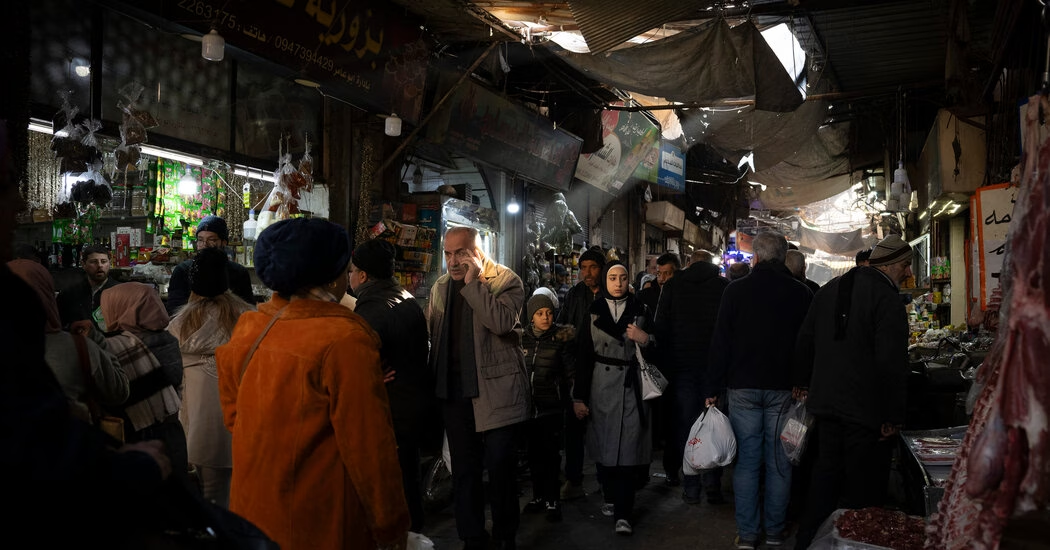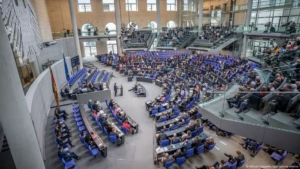In the days leading up to Ramadan, the once vibrant and bustling streets of Damascus have grown eerily quiet. The streets outside banks have become the stages for long, winding lines of Syrians, each waiting patiently to withdraw the equivalent of $15. This amount, a mere fraction of what is needed to stock up for the holiday, is now a luxury due to the severe daily withdrawal limits imposed by the new government.
For many, including a former civil engineer named Sleiman Dawoud and a retired civil servant named Ra’if Ghnaim, these financial constraints have transformed the usually festive month of Ramadan into a time of struggle. They worry about how they will afford not just the staple foods, but also the traditions that bring communities together, like giving children small amounts of money at the end of the month.
The economic situation in Syria has become desperate. The ouster of the Assad regime has brought about significant economic changes, including the opening of the market to imported products and the elimination of bread subsidies, which have made staple foods nearly ten times more expensive. Although some prices have fallen, many Syrians are unable to afford these goods due to the restrictions on cash withdrawals.
With Syrian pounds drying up and the government painstakingly shifting its economic policies, the currency’s value has finally started to strengthen. However, this comes as a cold comfort to citizens who are still battling to make ends meet. Many have taken to treating access to cash as a part-time job, spending hours or even days trying to withdraw enough to cover basic expenses, much less the traditional feastings of Ramadan.
The Central Bank, Economy Ministry, and Interior Ministry have remained silent on the matter, adding to the uncertainty and confusion. Analysts, including Karam Shaar from the New Lines Institute, point to liquidity crises and unclear monetary policies as the root causes. The situation is dire, with poverty and unemployment rates soaring, and the challenges are palpable in the daily lives of Syrians.
In the heart of the old city of Damascus, the market of Bab Sraijeh, once full of life and commerce, now echoes with the desperation of a community crippled by economic hardship. The economic struggles have stripped away the vibrancy of Ramadan, leaving behind a hollow shell of what was once a time of communal celebration and plenty.
As the country grapples with its new reality, shops are filled with unsold stock, and vendors worry about how they will survive. The spirit of Ramadan, once marked by the generosity and communal feasts, now hangs in the balance, as Syrians face an uncertain future.
Source: https://www.nytimes.com/2025/02/28/world/middleeast/syria-ramadan-economy-cash-shortage.html





